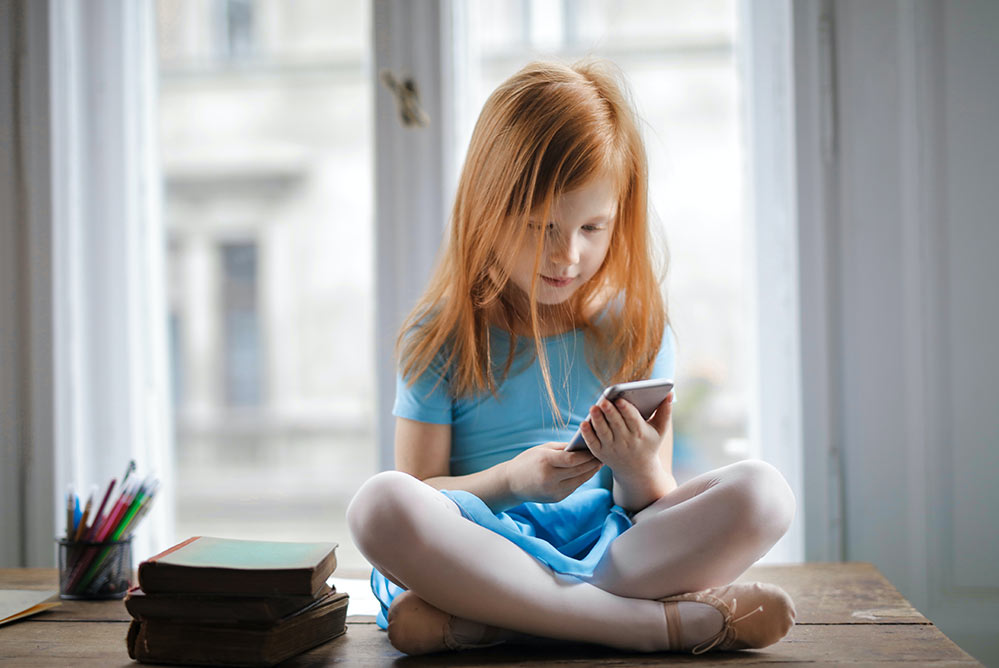Managing screen time from early on
Parenting small children takes up a lot of energy at any given time. Add into the mix the stresses and demands brought on by Covid-19 and we have tired and often overwhelmed parents looking for some downtime. It can be so understandably tempting to hand over a phone or a screen in any shape or form to those welcoming little hands. But it is important that we remain both practical and thoughtful about how we are using screen time with young children.
Why shouldn’t we leave them to while away the hours on a screen?
We can get very good at convincing ourselves that time spent on screens is ‘educational.’ Whilst it is true that babies and toddlers can and do learn things from what they watch on a screen, the truth is they learn best through active play and exploration especially when it is with close caregivers.
What does the research say?
Different paediatric associations around the world either provide no guidelines for children under 3 or specify screen time recommendations which range from discouraging screen time completely for under 2s to providing a maximum limit of between 1-2 hours.
Some research points to links between excessive screen time and health problems like diabetes and obesity because of sedentary lifestyles. Research also makes links with screen time and interrupted sleep. Some studies show changes in brain development from too much TV. From a wellbeing perspective research has shown correlations between long periods of screen time with low self-esteem , depression and anxiety. Research has also linked prolonged periods on a screen to attention difficulties and struggles with leaning.
Research is so important and helpful in guiding us, it can also be confusing, contradictory and inconclusive at times with so many variables to consider that impact a child’s development.
So taking into account the concerns that research highlights and our fascination and draw towards screens and what they offer, I think it is helpful to also defer to common sense and tapping into what we know is best for our kids and ourselves.
Children miss out when handed a screen
It is useful to think about what young children miss out on when they are too readily handed a screen and what we are wanting for our kids long term rather than the short term (tempting) quick fixes of quiet or distraction.
If we are wanting children who are able to engage with the world around them, to observe and learn from what they see, feel, hear and touch, to make connections, to think about their world, to feel their feelings (even when they are uncomfortable) and find healthy ways to move through them then we have to give them the opportunities to do all this.
Lost opportunities
Pre covid -19 I was in a doctor’s waiting room and a mom walked in with her baby in a pram who was probably about 8 months old. On entering the room, the mom handed her baby a phone and the child became immediately absorbed with the screen in front of her. The mom started chatting to someone else in the room.
This baby lost the opportunity to look around the room, to engage and connect with her mom which can be so helpful especially before going into a room with a relative stranger for a medical examination.
She lost the opportunity in that moment to feel safe in engaging with and exploring the room with the containment of her mom. When we hand that phone over so readily we also build the expectation that that phone will always be so readily available and when it is not, we can become frustrated and angry with our child for wanting and demanding the very thing we have previously provided and are now limiting.
Screens and all they have to offer are here to stay and they are part of our lives and will be part of our children’s lives in a very big way. They have so much to offer but as with most things; starting too early and overindulging is generally not a good idea.

So baring all this in mind here are some things to think about as you try to build healthy screen engagement in your children’s lives:
What are you doing?
Be aware of how you engage with your phone and other screens around you. Instead of whipping out a phone at any given moment to check the important and let’s not kid the less important stuff too, look around you, take a deep breath, talk to your child.
Ultimately this will serve you more in having energy and engaging with your baby than checking your Insta feed. When we choose our phone constantly, we also send out the message that that is more important than what is right in front of us. Our children are always watching and often emulating what we do. They learn from what we role model.
It is important to set limits
Parents often feel like they are at the mercy of the pull of the screen. Parents often lament “But they always want the screen.” As a parent, I can say it is hard! But we are not powerless. There is nothing wrong with them wanting the screens. Our children need us to set fair and reasonable limits that are in their best interests. It can be exhausting and sometimes embarrassing to deal with the fallout of saying ‘no’ and taking a screen away, short term but we need to help our children trust that we are indeed in charge and will provide reasonable and consistent limits for them. These limits help them feel safe and contained in the world.
As parents, we often fear the resistance and the tantrums. We must not parent from a place of walking on eggshells that will result in indulging the thing that causes resistance. This does a disservice to our kids. We can say, “ I know you really want daddy’s phone and its making you so cross but you can’t have the phone.” Acknowledge what is happening to help make emotional and practical sense of things.
Engage, connect and play
Connection grows connection. If we are constantly handing over a screen instead of playing and talking to our kids, it becomes harder to have them talk, share and engage as they get older.
When we do hand over screens…
Everything in this article said and done…there will be times that children under 3 are engaging with a screen. Covid-19 has upped the ante in parents needing some relief from often joyful but also often relentless demands that parenting under 3s can bring! This does not make for bad parenting, it makes for human parenting!
So here are some things to consider in balancing the guilt with realities and what is best for small children:
- What are they watching? Make sure it is age appropriate
- How much are they watching? Limit their time. 2 hours in a day is definitely the upper limit for 3 year olds and even that is A LOT. Rather break into short chunks. Watch their mood – you will often see how irritable they become after watching for too long.
- When are they watching? Avoid watching near bedtime.
- Engage with what they are watching! After they have watched or during the programme talk about the characters and what they have seen, “Did Peppa Pig jump in the puddles? – show me how Peppa Pig jumps.”
At the end of the day, screens are not going away. It helps for parents to be thoughtful and boundaried in starting their children on their long and winding screen journeys.
Share this
- 0
- 1
Related Posts
Have you tried the Nubabi Free Trial?
Get unlimited access to Your Parenting Toolkit for 2 weeks for free!
Track, Boost, Explore and Capture your child's growth and development.
Available on both mobile and web.



